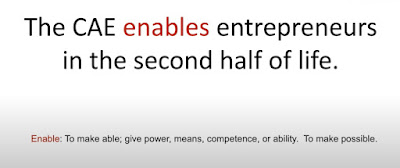Boston: The Silicon Valley of longevity?
Two of my favorite quotes below, with a link to the full article.
Boston: the Silicon Valley of longevity?
An older population can serve as the hub for a new kind of innovation cluster.
“In the United States, the economic impact of older adults is already remarkable. Americans aged 50 and up account for just 35 percent of the US population, but, according to the AARP, they controlled 83 percent of all household wealth as of 2018, and were responsible for 56 cents of every dollar of consumer spending — a figure expected to rise to 61 cents by 2050. Their unpaid activities, including elder care, child care, and volunteerism, add another $745 billion worth of production to the US economy. Their labor force participation, too, continues to rise, part of a long-term trend that started in the 1980s.
But older people’s potential economic activity only begins with what they’re up to now. Tools to address their future needs, wants, goals, aspirations, and overall quality of life are either lacking or haven’t been imagined.”
Note: The Boston area is primed to assume first mover advantage in the longevity economy. This article is correct. Holding the first mover advantage will allow the Boston area entrepreneurs in this space to focus on high value products and services – with smart jobs and good wages for the region for the long term.
“But older people are not purely consumers. The story of older employees, as well as older adults’ unpaid contributions to society, is one of catastrophic missed opportunity. Many industries are hemorrhaging intellectual capital as a result of waves of retirement, while in other industries, older workers have to fight both outright and implicit ageism for the right to contribute meaningful work. Traditional unemployment metrics, which don’t categorize retirees as unemployed, paper over the reality. In one nationwide survey, 40 percent of self-described retirees said they would rather have kept working if given the opportunity, and 30 percent said they would rejoin the workforce for the right job.”
Thank you authors Joe Coughlin and Luke Yoquinto for this valuable perspective.




Comments
Post a Comment